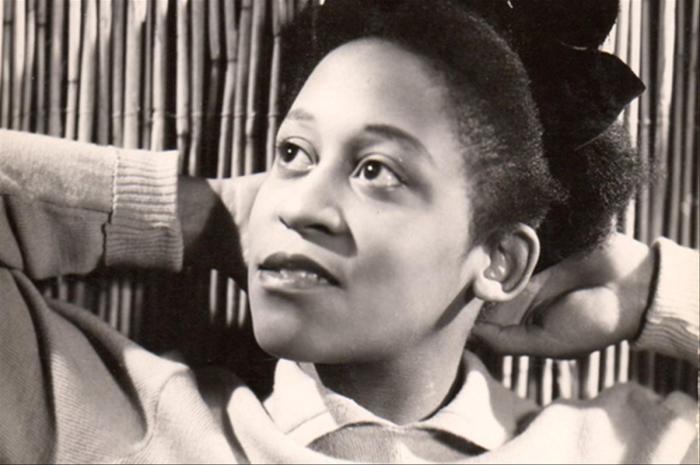
Marie Nejar is an Afro-German singer, actress, and nurse whose minor roles in Nazi propaganda films helped to ensure her survival in Nazi Germany in the 1940s. She was born to a black sailor, who only saw his daughter a few times. Due to her mother’s early death and the absence of her father, Nejar was mostly raised by her grandmother. Although Nejar grew up in a multi-ethnic community, the rise of Nazism nonetheless left her exposed to racism.
Marie Nejar was forced out of school and into factory labor after the passing of the Nuremberg Race Laws of 1935. Although she received help from sympathetic people in her community, Nejar ultimately secured her own protection by agreeing to appear in Nazi propaganda films. She was only ten years old when she performed in her first film, not knowing that it would be used for Nazi propaganda purposes. While her acting provided her with necessary food and income, she came to feel eroticised and exoticized through the films. When Nejar turned 14, the legal age for Kriegsdienst (mandatory labor in wartime), she left the movies and worked in Hamburg.
After the war ended in 1945, Nejar began her musical career as a singer, using the stage name Leila Negra. Her status as a performer further implemented the fact that the German society felt that she was included in the German nation, but not enough enough to avoid subjectivity from her peers. In 1957, Nejar traded her singing career for nursing after releasing close to thirty songs and appearing in about six films, including Münchhausen (1943), Quax in Africa (1947) and Dancing Stars (1952). Nejar continued her work as a nurse until she retired in 2015, and she published her autobiography in 2007, which has not yet been translated into English.
Marie Nejar was never fully accepted or excluded from the German public, both during prewar and postwar Germany. Through both her starring in Nazi propanganda films as a child as well as her singing career during the post-war era, Nejar had experienced “partial inclusion” (Priscilla Layne).Still, Marie Nejar rose above her circumstances and used her talent to survive.
– Marie Tweedie (University of Missouri)
Priscilla Layne, “”Don’t Look So Sad Because You’re a Little Negro”: Marie Nejar, Afro-German Stardom, and Negotiations with Black Subjectivity,” Palimpsest: A Journal on Women, Gender, and the Black International, vol. 4 no. 2 (2015): 171-188.